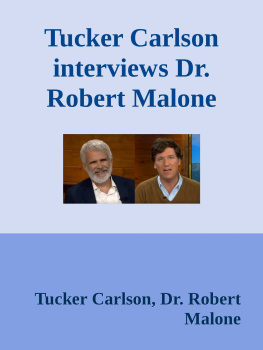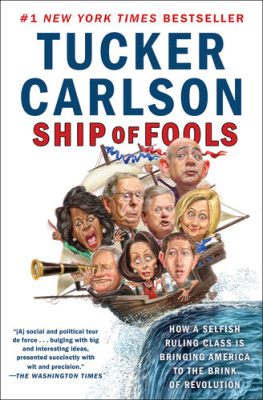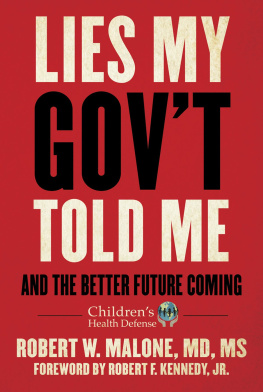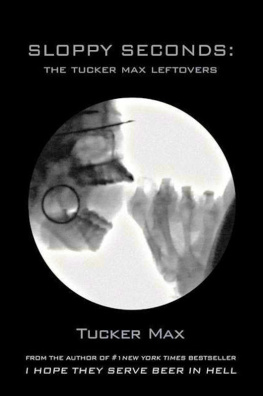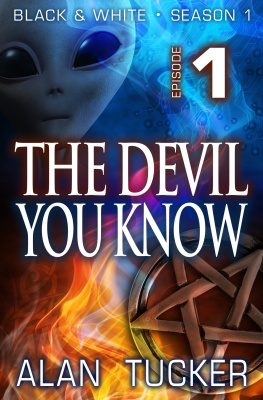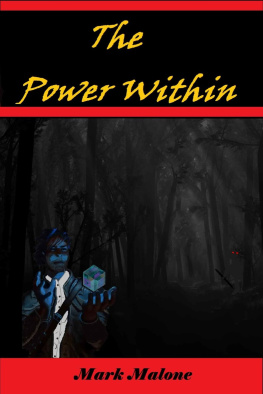Tucker Carlson interviews Dr. Robert Malone
Feb 10, 2022
https://www.bitchute.com/video/T0ruSSuKQYMh/
https://www.bitchute.com/video/AJ46rdzaY9M4/

Tucker: A very famous and very, I hate the word, we're going to use it anyway, controversial figure in American life whose name is Dr. Robert Malone. Who is Dr. Robert Malone? Well, he is sometimes described as one of the people who helped invent Miranda technology, the one that is used in the corona vaccines. Currently, he is described by others as a provocateur and entertainer. We're going to let him describe himself. Our own editorial comment is we believe Dr. Malone is one of the very few and certainly one of the bravest voices in the medical community speaking out against censorship in a time of pandemic. He believes in science, so we are honored to have him in our studio now. Dr. Robert Malone, thanks very much for joining us, Doctor.
Robert: Thank you, Tucker. Thank you.
Tucker: You know what, I'm just going to start at the moment when I think a lot changed in our country and probably a long time before we fully metabolize what happened and your role in it, et cetera. But I'm just going to start right here and then we can work backwards in your life. You can explain exactly who you believe you are and what you're doing. But I think you came to the attention of a lot of people who were only paying half attention December 2021. So basically just the other day in an exchange with Joe Rogan on his show, a lot change for him after this conversation, in which you said the following here's the famous 45 seconds.
Robert: What the heck happened in Germany in the 20s and 30s? Very intelligent, highly educated population, and they went barking mad. And how did that happen? The answer is mass formation psychosis . When you have a society that has become decoupled from each other and has free floating anxiety in a sense that things don't make sense. We can't understand it. And then their attention gets focused by a leader or a series of events on one small point, just like hypnosis. They literally become hypnotized and can be led anywhere.
Tucker: Ok. That was the moment when the cry went out, destroy Dr. Robert Malone, destroy Joe Rogan, and they've been at it ever since, so I want to get to that in some detail, what you meant. Whether it was true or not, et cetera, et cetera, but let's just let's start with you, tell us you where you're from, how would you describe your life since so many have described it?
Robert: For you recently? Well, and I've done hours and hours and hours of podcasts talking about everything that happened at the Salk Institute and the original discoveries around RNA vaccines and all that. And it's not really useful, I think.
Tucker: Give us the Cliff Notes version, where did you grow up? What did your parents do? When did you get into science?
Robert: Ok, let's kind of interesting. I grew up on the West Coast, particularly in the central coast of California in Goleta. I was born in Stanford University Hospital in Palo Alto. My dad was an electrical engineer. He was deep in the Department of Defense, particularly working in, actually thermonuclear triggering devices and electromagnetic surge protection, high energy systems. So kind of spooky world. My mom was a teacher from Mills College. And really a key figure in my life was my father-in-law, who was head of Raytheon Special Projects. So I've met numerous people from the CIA from back then that knew him.
Tucker: So we should say for people who aren't from California, a lot of you know, agriculture, entertainment, tourism and defense contracts really built California. And the last part, I think people aren't from there don't know. And so your family was entwined in the last part.
Robert: Totally and particularly in aviation electronics. I was involved in agriculture. I've spent a lot of time as a farmhand in avocados and lemons. Both my dad and my father-in-law had avocado groves. And I'm still married to my high school sweetheart that I met in Goleta. And our common bond was horse riding. We used to, back in the day before there were avocado fields all over the hills, we used to ride all over in the backcountry and along the beaches. The areas that we used to ride along, the beaches now are the Bacara resorts. So that's like Oprah Winfrey has a place there. But back then, it was just wild old rundown oil country land. It's all changed. I grew up about four miles as the crow flies from Reagan's ranch.
Tucker: Yeah, beautiful, beautiful part of the state.
Robert: And I went first to Santa Barbara City College. I'm a city college grad, as was my dad as were both of our boys, and then went to UC Davis, where I really got deep into breast cancer research and retrovirus causes of breast cancer. And the lab I was in just serendipitously happened to be the one that first discovered a retrovirus being involved in an immunodeficiency syndrome. This is 1983-84. So I kind of cut my teeth on the very earliest days of the AIDS outbreak and the development of vaccines for AIDS and those kinds of things. And I had originally been a computer science major, and I didn't want to spend the rest of my life in a room with no windows looking at a computer monitor. And so I decided to go into medicine. Bad decision, but you know
Tucker: Financially.
Robert: Financially for sure, for sure. Both my sons are computer scientists and they make more than I do. So they made the right decision. They were like, Academia, are you kidding me? After seeing what my wife and I went through, yeah, so I got out of computer science and went into biology and really became passionate about wanting to be a gene therapist. And it was a real stretch in the early 80s to think that you could get into medical school. Frankly, you'd have to be pretty much of an egotist to think you could do that. But I wanted to try and it was a big reach to try to get into medical school. And I kind of overshot the goal. I got an MD, PhD scholarship at Northwestern because I worked so hard in the lab when I was an undergrad. So that kind of set that in play and I really wanted to work with RNA and I wanted to work in gene therapy and spent two years at Northwestern in Chicago. My wife will never again allow me to make a relocation decision, I guarantee.
Tucker: Good call.
Robert: Yep. So we were like, this is a little cold. And so I applied for grad school elsewhere and again kind of overshot the mark and got into the Salk Institute at UC San Diego, which had the two top gene therapy researchers at the time. And I was warned not to go into the Salk lab of Inder Verma by my appointed mentor from the university. But I was kind of an egotistical little son of a gun and really thought it was a postdoctoral lab, so no graduate students. I was the little kid in an intensely competitive environment in what was really the temple for vaccines and molecular virology. The Salk had about six Nobel laureates and had produced multiple Nobel laureates. And so I was right in the thick of it.
Tucker: I grew up hundreds of yards from there. So I remember, I mean, that was the thing that our town had.
Robert: Yeah, the Salk has many stories about Jonas Salk. They had to change the policies of La Joya because they wouldn't let Jonas Salk move into town, and the university basically told him because he was Jewish. Yeah, you know that. Ok, so you know that whole story. Fascinating California history, big time. So the Salk was a pretty tense experience, just a cascade of discoveries and events, and I was working my head off and really passionate about what I was doing and trying to find ways to ask questions about how retroviral RNA gets assembled. This is very technical, and there really wasn't stuff to do the kinds of studies that I wanted to do, and so I had to invent it. And one thing led to another, that's the short version. And suddenly things came together and I was able to put RNA into cells, and then I was able to put RNA into frog embryos, and then I was able to put RNA into chick embryos and then everything went sideways because suddenly people realized that this could be commercialized. And I was just a small speck in a big landscape of get rich quick and patents were filed and the university got in a fight with the Salk and the Salk going fight with the university. And I was just kind of caught in the crossfire, and I ended up with a diagnosis of PTSD and a nervous breakdown.
Next page
